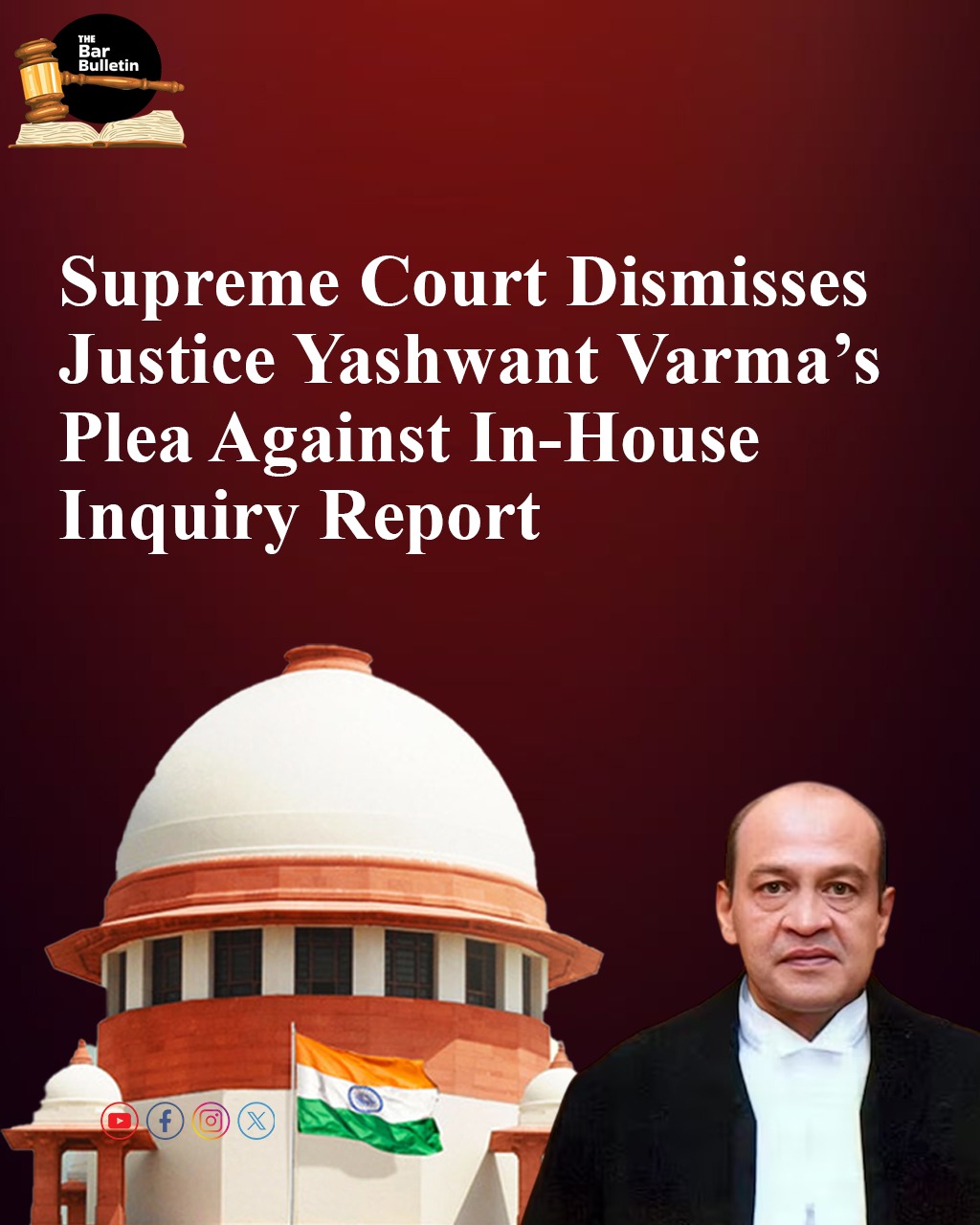The Supreme Court dismissed the writ petition filed by Justice Yashwant Varma challenging the in-house inquiry report related to allegations concerning the recovery of burnt currency notes. Delivering the judgment, Justice Dipankar Datta emphasized that the Court had tread carefully to ensure that none of its observations would prejudice the petitioner in any future proceedings.
The petition was filed by a Justice Yashwant Varma who challenged certain provisions of the In-House Procedure after an internal inquiry found prima facie evidence of serious misconduct following the discovery of burnt currency notes in his official residence.
The petitioner, represented by senior advocate Kapil Sibal, sought a declaration that paragraphs 5(b) and 7(ii) of the In-House Procedure which allow the Committee to recommend removal proceedings and permit the Chief Justice of India (CJI) to intimate the President and Prime Minister accordingly are ultra vires the Constitution, particularly Articles 124, 217, and 218. The judge also objected to the public release of inquiry materials, arguing that it violated his fundamental rights under Articles 14 and 21.
The Court, however, rejected all constitutional challenges, affirming that:
The In-House Procedure, while not explicitly mentioned in the Constitution, fills a vital “constitutional gap” and has legal sanction under Article 141.
The CJI is not a mere post office and can forward the report with his opinion to the President and Prime Minister, especially when misconduct of a judge is found serious enough to warrant withdrawal of judicial work.
The Judges (Protection) Act, 1985, supports such action as being within the powers of the Supreme Court under law.
Procedural safeguards under the In-House Procedure meet standards of fairness, even though they do not match the rigour of a formal judicial or impeachment inquiry.
Public dissemination of the inquiry report and related materials, though contentious, does not violate constitutional rights, especially when the judge had not objected at the initial stage.
The Court emphasized that judicial self-regulation is essential to preserve the integrity of the institution and public confidence in the judiciary. The petition was accordingly dismissed.
Cases Cited in the Judgment
Indira Jaising v. Registrar General, Supreme Court of India, (2003) 5 SCC 494
Sahara India Real Estate Corporation Ltd. v. Securities and Exchange Board of India, (2012) 10 SCC 603
Sub-Committee on Judicial Accountability v. Union of India, (1991) 4 SCC 699
C. Ravichandran Iyer v. Justice A.M. Bhattacharjee , (1995) 5 SCC 457
P.D. Dinakaran (1) v. Judges Inquiry Committee, (2011) 8 SCC 380
Additional District and Sessions Judge ‘X’ v. Registrar General, High Court of Madhya Pradesh (2015) 4 SCC 91
D.C. Saxena (Dr) v. Hon’ble The Chief Justice of India, (1996) 5 SCC 216
State of Rajasthan v. Prakash Chand, (1998) 1 SCC 1
Supreme Court Advocates-on-Record Association and Another v. Union of India, (2016) 5 SCC 1
K. Veeraswami v. Union of India, (1991) 3 SCC 655
![]()


One thought on “Supreme Court dismisses Justice Yashwant Varma’s Plea against In-House Inquiry Report”
Pingback: Lok Sabha Speaker announces Constitution of 3-Member Enquiry Committee under Judges (Inquiry) Act against Justice Yashwant Varma - The Bar Bulletin